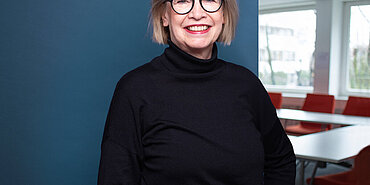How can international youth work organisations in Germany and North Africa be brought together? How can existing relationships be strengthened and supported? When IJAB began to revive the youth policy dialogue with North Africa in 2011, these were the points of debate. Since then, a robust network for youth and expert exchanges has developed that incorporates civil society groups in Morocco, Tunisia and Egypt. A key milestone was laid in 2012, when Germany’s Federal Foreign Office began to fund youth exchanges between Germany and North Africa under its “Transformation Partnerships” programme.
Fast forward to today and a lot has happened. The number of youth and expert exchanges has risen significantly, and partners on either side of the Mediterranean have developed long-term relationships. In 2015 IJAB organised its first evaluation conference in Bonn for major stakeholders from all participating countries; a second conference in Tunis followed in 2017 to strengthen the network that was established in 2015. These were valuable opportunities for the stakeholders to discuss their experiences and develop recommendations for future collaboration. One key outcome of the conferences was a plan to strengthen the network between the organisations also at the national level, helping them to stay in touch, exchange experiences and move ahead with their work.
What North African youth exchange activities are there?
In their welcoming address, IJAB Director Marie-Luise Dreber and IJAB Programme Associate Christiane Reinholz-Asolli reminded the approximately 30 stakeholder representatives of the recent history of German-North African exchanges. Among the guests were IJAB’s partners from Tunisia and Egypt. Sami Essid from Club Culturel Ali Belhouane reported that acceptance for international youth work in Tunisia had improved. The 2017 conference on youth exchanges had made an impression on political decision-makers in Tunisia, he said, and raised the profile of civil society groups. Youth exchanges were now seen as a valuable way to encourage youth participation, he concluded. As for his own organisation’s international work, Essid identified active citizenship and anti-radicalisation as key areas of activity.
While the follow-up meetings to the Königswinter event in Tunisia and Morocco have been scheduled for December 2018, a national meeting was already held in Egypt in August 2018. Ahmed Hassan reported from this national conference which, like the Tunis conference in 2017, was part of the Dialogue Me To Network series of events. Among the topics of discussion in Cairo were corporate social responsibility, women’s empowerment, and civic education. Hassan voiced high hopes of the announced relaxation of Egypt’s legislation on NGOs, although other participants were less optimistic– they felt that civil society groups’ room for manoeuvre is set to shrink rather than expand.
Closer cooperation between networks
The Königswinter meeting was attended by a number of German-North African networks which were present for the first time. Germany’s Federal Agency for Civic Education has been instrumental in building the NACE (Networking Arab Civic Education) network in recent years. GIZ, an international cooperation service provider for sustainable development and international education work, is working with Egypt’s Youth Ministry in Cairo on a project to combat sexual harassment. The Goethe Institute in Cairo works with a number of partners in the region and also offers scholarship programmes in cooperation with Youth for Understanding Germany, amongst other things. The Franco-German Youth Office has a long-standing partnership with the Maghreb countries on exchange programmes. While all of these networks have their own specific focus, they do have one thing in common: their work benefits young people and their future. To make their work even more effective, it is good for them to know what the other members of the network are doing, to identify common ground, and where possible to strike up partnerships.
What are the hallmarks of a successful exchange? What are the challenges? What aspirations are there for the future? The participants proceeded to discuss these questions in smaller groups but also in the plenary. Not all of the responses they came up with are specific to exchanges with North Africa. For instance, many organisations are constrained by the difficulties they encounter while obtaining visas from German consulates and embassies, find it challenging to bring their exchange programmes to a wider audience, and suffer from a lack of acceptance of non-formal education programmes.
An awareness of inequalities
Time and again, participants mentioned the importance of operating on a level playing field which, unfortunately, is still the exception in this context. Much of the funding for German-North African exchanges comes from Germany, creating an imbalance between the organisations. And while the German partners can fall back on a strong infrastructure and full-time paid staff, their North African counterparts still mainly work with volunteer staff. “We need to keep reminding ourselves that these inequalities exist,” urged a participant. It was important to build long-term relationships, she continued. Only then would the partners be able to understand each other and build trust.
In fact, the participants want to put the subject of inequality at the top of the agenda of the next conference in 2019 in Morocco. “I also took note of other issues people want to talk about,” recalled Christiane Reinholz-Asolli towards the end of the meeting. These include shared interests in the field of environment and nature, PR and lobbying to raise awareness of the projects and their benefits, radicalisation and extremism, digital tools for communication, youth policy work in all participating countries, and language. “When we use the same term, do we actually mean the same thing?” a conference participant had asked. However, the agenda for the Morocco conference is far from complete; the concerns and priorities of the North African partners will also be taken into consideration. However, there are strong signs that – as desired by all participants – this dialogue will acquire greater depth and meaning.




